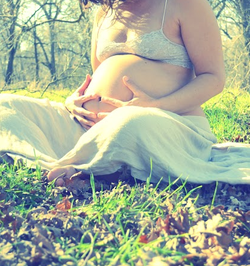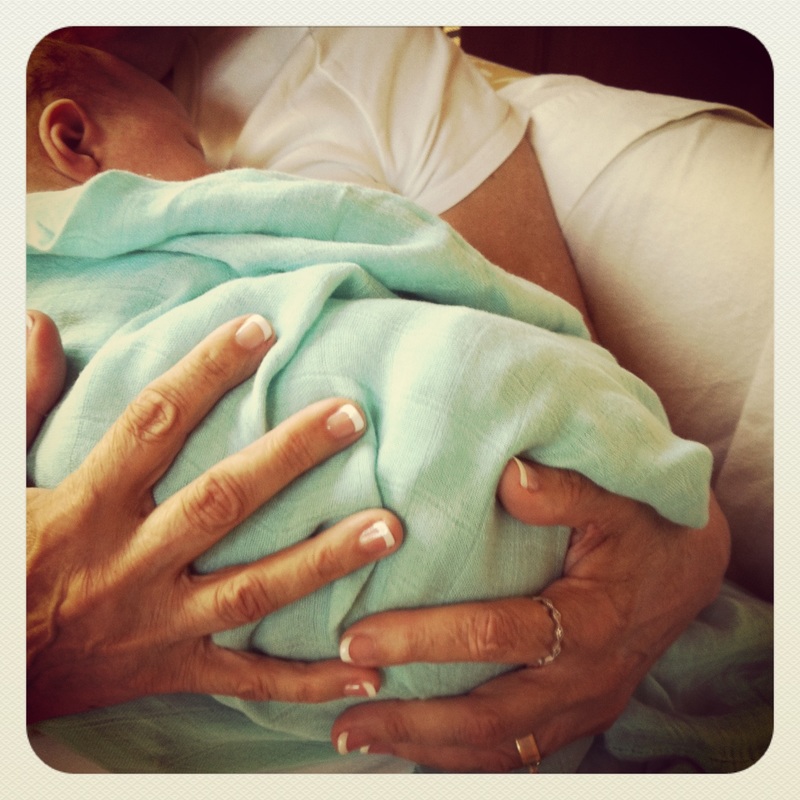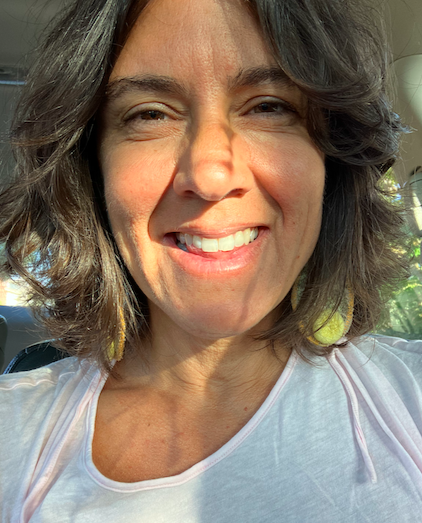 My mother, Carmen, isn't a midwife according to popular definition. Yet she most certainly is a midwife. As a high risk birth labor coach with the Companeras program based in San Rafael, California, she has attended 100s of births, touching deep into the hearts and lives of many women who've come to call her their children's Godmother. And the bond between her and her clients runs just as deep with the mothers whose babies die. My mother is an angel. mid·wife ˈmidˌwīf/ noun 1. a person (typically a woman) trained to assist women in childbirth.verb verb 1. assist (a woman) during childbirth. In honor of International Women's Day, I dedicate this piece to my mother. March 8th is also the birthday of famous midwife Ina May Gaskin, and forty-one years after my mother gave birth to me, her third child. In celebration, I decided to interview my mother about her work. Decades of admiration, from me and my friends who've met her and heard her stories, all led up to this conversation. It is my simple and heartful tribute to my own beautiful mother, and to women and mothers everywhere. Me: What do you do?
Carmen: I support Spanish speaking pregnant women with high risk births both during pregnancy and labor, and in the intensive period after the birth. Why do your clients need you? They need us to help them understand what’s happening with their pregnancy, since they aren’t native English speakers. Culturally they need us because of the language differences among Spanish speaking countries. Something we say in Guatemala might mean something totally different in El Salvador. Speaking a shared language bonds people together, so the women often benefit a lot from our connection with them. Our clients are not used to asking a lot of questions, so we help them communicate. They understand the process more, and eventually they feel safer because of our bond. Why do high risk births happen? A birth is termed high risk for two reasons: medical or trauma related. It’s common that there’s some sort of trauma that has not been healed. And usually when a woman is pregnant, unless her life's trauma has been dealt with, it tends to arise. For example women who have been raped at the U.S. border, they come here to work, they don’t want to deal with it or think about it, and all of a sudden they don’t have a menstrual period and Boom. There’s also domestic violence, childbirth sexual abuse or drug addiction. Being a pregnant teenager entails a high risk birth too, because you don’t always have the support of your family, or you may have been raped so you’re dealing with trauma. Being a teen mother puts babies at risk because teens aren’t necessarily prepared to be mothers. The stress level and other challenges in parenting can be too much for the new mother. How many stillborns have you attended? There have been six stillborns. Three of the babies were anencephalic, and one of them was Wolf Syndrome. The other two died as they were born due to abnormalities including chromosomal problems. One baby lived two minutes and the other baby lived 17 hours. What is the best part of your work? Helping women. Helping women to be more informed about breastfeeding, postpartum depression, what labor is like... that they have choices. They have choices during labor and it’s important to be informed before you go into labor. What is the most challenging part of your work? Family members of the pregnant women. Family members have their own ideas about birth, and they’re not always well informed in a way that’s helpful to the woman. They tend to give misinformation. Clients need to have all the information and then they need to make a well informed decision for themself and their baby. One of the hardest things is to have a teenager who’s pregnant and her annoyed mother in the same room. Her mother fills that room with fear because she’s totally annoyed at her child who is pregnant. What is the most important thing you say to mothers whose babies don’t survive? I say very little. In situations like that. The phrase that I use is “Silence is golden.” I wait for them to ask. If they ask for specifics, I tell them the truth. Honesty. On any medical question they ask me I refer it back to the doctor. Often mothers tend to blame themselves. Simple words can be helpful. I say, “What did the doctor tell you? This has nothing to do with eating or drinking…” You can help the mother to try not to blame herself. “If it’s a chromosomal problem, it’s not what you ate.” The most important thing is to be present. To know they can pick up the phone and ask me a question, and if I can’t answer it, I will make calls to find the answer. And to support these mothers who lose babies after the baby is born, because that’s... a big job. What would you say to women who have healthy live births? A child is a gift. I’ve even had a couple clients who have been raped and choose to have their babies. Who’s anyone to say you should have an abortion just because you’ve been raped? It’s an innocent child. Everyone makes their decisions and they have to live with their decisions. It’s very important to respect your client, because it’s easy to be shocked with things that people say. To not be reactive, if they tell you that they have been raped, to treat what they say as confidential. A child is a gift. Bless every drop of your beautiful Puerto Rican blood, my dear mother. I am completely honored to be your daughter.
4 Comments
Dresden
3/8/2016 05:17:29 am
Thank you Jess and Carmen. This is powerful and blessed work.
Reply
3/8/2016 09:49:42 am
What a loving tribute full of love, vital information and beautiful words. What an inspiring blessed mama you have in your life. Thanks for sharing her story.
Reply
Rebecca
3/9/2016 06:56:45 pm
So honored to have this beautiful tribute brought to my attention. What a wonderful way to honor your mother, to share her important work with the world. I'm so thankful to have you both in my life.
Reply
Nina
3/14/2016 07:47:39 pm
Brilliant - how lovely to hear this about your Mother so soon after meeting her!
Reply
Your comment will be posted after it is approved.
Leave a Reply. |
AuthorJessica Rios, Founder of Leaning into Light, was born with a divine pen in her pelvis. Her heart writes for her; Love is her 'religion'. A lifelong letter writer and a thought leader in Love, her blog is devoted to her greatest passion: illuminating the beauty of the human spirit so we all move closer to remembering that Love is Who We Are. Categories
All
Archives
May 2024
|




 RSS Feed
RSS Feed